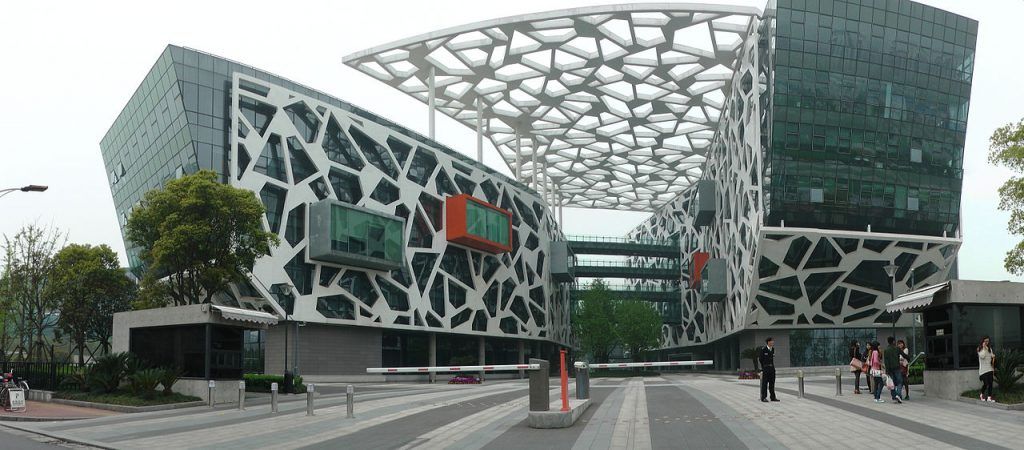Internet-trading platforms: Making it easier to get around sanctions?
By Ian J. Stewart, Nick Gillard, Jonathan Brewer | October 31, 2014

Internet-trading platforms have become a big business. For example, Alibaba—the Chinese e-commerce site where people and businesses buy and sell directly to one another—is by some measures the world’s largest online trading company, according to The Wall Street Journal. Founded just 15 years ago as a matchmaker that connected manufacturers in China with wholesale buyers overseas, Alibaba has grown exponentially and expanded its offerings. Recently characterized as “the biggest business you’ve never heard of” by the BBC, Alibaba has become a gigantic, international market square for all kinds of goods and services, in both business-to-business and direct online sales to consumers—transacted within its own proprietary online payment service. Alibaba’s initial public offering on September 14 was one of the largest in the world: one-and-a-half times larger than Facebook’s, ten times larger than Twitter’s, and nearly 250 times larger than eBay’s. And the company has a host of imitators, such as Made-in-China.com and GongChang.com.
The result of the blossoming of all these online Internet-trading platforms is a virtual supermarket of goods being bought and sold. But if it is a supermarket, it is arguably one with insufficient inspectors and product controls when it comes to goods relevant to nuclear proliferation.
On Alibaba (and other platforms), one can purchase many of the specialized items needed for the manufacture of nuclear weapons. A short list of items advertised for sale on the site include metals suitable for centrifuge manufacturing, gauges and pumps for centrifuge cascades for uranium enrichment, metallurgical casting equipment suitable for making nuclear weapon "pits," and high-speed cameras suitable for use in nuclear weapon diagnostic tests. A company on an Alibaba-owned Chinese Internet-trading platform even posted an ad for the sale of the rare metal gallium, which the seller trumpeted could be used to stabilize plutonium. (The ad has since been taken down.) And while Alibaba is the largest and most visible Internet-trading platform where such things occur, many of these same goods and materials can be found advertised on other websites, including eBay.
Many companies that trade through Internet platforms have strict compliance procedures in place when buying or selling goods to avoid proliferation. But many do not. They may not be aware of proliferation controls, be too small to support effective compliance procedures, consider compliance not cost-effective, or be ignorant of compliance requirements. These companies are vulnerable to exploitation by state-sponsored proliferators or non-governmental actors—such as terrorist groups—seeking proliferation-related materials, goods, and equipment that are otherwise inaccessible due to UN Security Council resolutions or other controls.
Although the number of known proliferation-related incidents involving Internet platforms is few, especially when considered in proportion to the total amount of world trade, they pose a serious challenge for Internet-trading platforms. How should the platforms’ owners monitor possible advertisements for proliferation-sensitive goods and materials placed on behalf of others, and what should they do to ensure such items do not fall into the hands of rogue states or organizations such as ISIS?
The good news is that the challenge is not intractable. There are measures such platforms could and should take to manage proliferation-related risks. National authorities, regulators, and shareholders also have a role to play.
New but not unprecedented. Business-to-business trading platforms do not easily fall into the existing international framework of sanctions and export controls developed over the past few decades. Essentially, this is because they are technically not directly involved in transactions. Most business-to-business websites typically do not ‘touch’ the goods that are sold; nor do many handle the money involved. (Indeed, many of the Alibaba Group’s trading platforms make money by charging merchants to buy virtual storefronts, or by selling advertising space). As a general rule, they are marketplaces in the original, pure sense of the word—places for buyers to meet sellers.
Yet national and international laws regarding nuclear proliferation must be met, by both states and the private sector. At a national level, all states have responsibilities to police the trade in proliferation-related goods, as mandated by UN Security Council Resolution 1540. This resolution does not specify which technologies must be controlled, but many countries adopt the lists of goods regulated by international bodies concerned with limiting proliferation, such as the Nuclear Suppliers Group. Their lists contain not just items specifically designed for a nuclear, chemical, or biological end use, but also those which can be used for both peaceful and military ends, known as “dual-use” items.
Obviously, Internet-trading platforms are required to comply with the laws of any territory in which they operate. But with Internet-trading platforms often acting more as virtual town squares than as agents actively arranging transactions, the legal requirement for being involved in export compliance is not always clear. If authorities treat these websites only as facilitators between buyers and sellers, it will generally fall to the seller or exporter to apply for an export license, or make sure that they do not breach export control laws.
In addition to following the rules of each territory, Internet-trading platforms must also obey any international sanctions. The latter fall into two principle categories: sanctions required by the United Nations, and sanctions undertaken unilaterally by individual countries. The UN Security Council currently maintains bans on trade relating to 16 countries, with the sanctions on Iran and North Korea based upon concerns about weapons of mass destruction. The particulars of a given sanction vary, but typically it includes a list of entities in that country whose assets must be frozen by a UN member state. Sanctions can include arms embargoes, and in the case of proliferation-related sanctions, a prohibition on the supply of goods.
This means that UN sanctions prohibit an Internet-trading platform from taking money from an entity such as the Atomic Energy Organization of Iran (AEOI). Firms should screen their listings to prevent advertising by entities such as the AEOI—determined by the UN to be involved in nuclear proliferation—and it appears that Alibaba.com may already keep out such “UN-designated suppliers” of banned nuclear-related materials. We have seen no UN‑designated suppliers on Alibaba.com, although we did find a number of listings for companies designated by the European Union and the United States as supplying goods to Iran’s nuclear and missile programs. (Alibaba.com removed most of these listings after being alerted by the Financial Times and by Project Alpha—an organization based at Kings College London that is devoted to understanding and countering illicit, proliferation-related trade.)
But the targets of most UN sanctions would be highly unlikely to advertise or sell goods and services in their own name: They are more likely to use a front company or middleman. Consequently, Internet-trading platforms should screen for proxies as well, to prevent such purchases from taking place.
From the point of view of the Internet-trading platform, the unilateral measures enacted by the United States are of particular importance. America maintains its own, expansive list of designated entities subject to sanctions, which are located in almost every country in the world. American measures also require US firms and persons not to do business with certain countries at all unless under license, including Iran and North Korea. In order to be sure it is in compliance with these sanctions, an Internet-trading platform operating under US jurisdiction should screen all the sellers on its site for any US-designated entities. It may also have to offer restricted service or no service at all to countries where the United States employs a complete embargo.
Meanwhile, a platform incorporated in China that does not sell to the US market could choose to opt out of US measures (though it must still legally abide by UN sanctions). Deciding what course to follow is ultimately a calculation of risks that the company must undertake on its own.
Marketing compliance. Internet-trading platforms should take measures to ensure that their business activities will not inadvertently assist proliferation. According to UN resolutions, items should not be transferred to proliferation-related programs or activities if they are included on control lists; under the control of designated entities or individuals; or intended for prohibited activities.
Screening for sanctioned entities like AEOI, therefore, is not enough on its own to prevent online-trading platforms from being used for nuclear weapons’ proliferation. Policies need to be put into place to manage sellers’ listings of proliferation-sensitive items such as high‑strength carbon fiber—perfect for the supersonic centrifuges used to enrich the uranium in nuclear bombs. (And, at the same time, platforms need to oversee buyers’ requests for such items, insofar as possible). There should be no expectation, however, that online trading platforms will remove all listings for all items that could be remotely considered potentially proliferation-sensitive; this denies legitimate sellers the chance to trade. Instead, platforms should restrict the sale of the most sensitive items and regulate the sale of other items that could be useful to nuclear weapons programs. Platforms should ensure that export-licensing requirements are made clear to users, and ideally not just through fine print buried in a site’s terms and conditions.
For instance, in cases where the civil industrial uses for a product are rare—such as 7075-grade aluminum (a high-strength alloy suitable for making centrifuge rotors) and maraging steel (a heat-treated steel alloy also strong enough for use in centrifuge components)—platforms like Alibaba should consider whether the benefit of listing such items outweighs the damage that could be done by possibly becoming an inadvertent facilitator of proliferation. It should be simple for Internet-trading platforms to maintain a list of key words and phrases to be banned from listings; they can always consult with governments to determine which items to bar.
There are potential commercial advantages for trading platforms that adopt such systems. They gain recognition as responsible businesses from their nation’s authorities; become the platform of choice for trading companies concerned about the risk of unwitting involvement with prohibited programs; and get public recognition as responsible commercial entities.
Offline too. To have the greatest impact, these measures need supporting actions. Buyers will always try to find a way to contact sellers. Measures to promote compliance on Internet-trading platforms must be matched by efforts to ensure that manufacturers do not enter into direct, one-on-one proliferation‑related sales by other means—online or otherwise. Manufacturers and exporters are central, but all involved in the supply chain must respond to the challenge of proliferation.
This challenge is particularly important in countries such as China, where industrial capacity is growing at a pace far beyond export control awareness. There is a worrying lack of knowledge on the part of Chinese industry about even Chinese domestic legal requirements. Chinese authorities need support in their efforts to ensure their private sector—Internet-trading platforms included—contributes to combating proliferation.
Otherwise, much like what happened in the Arabian Nights’ tale from which Alibaba gets its name, a thieves’ den could open up.
(In the time since publication, Alibaba has removed known listings belonging to companies designated by the European Union and the United States as being involved in the illicit trade in weapons of mass destruction—the Editors.)
Together, we make the world safer.
The Bulletin elevates expert voices above the noise. But as an independent nonprofit organization, our operations depend on the support of readers like you. Help us continue to deliver quality journalism that holds leaders accountable. Your support of our work at any level is important. In return, we promise our coverage will be understandable, influential, vigilant, solution-oriented, and fair-minded. Together we can make a difference.
Topics: Analysis, Nuclear Weapons, Technology and Security
















